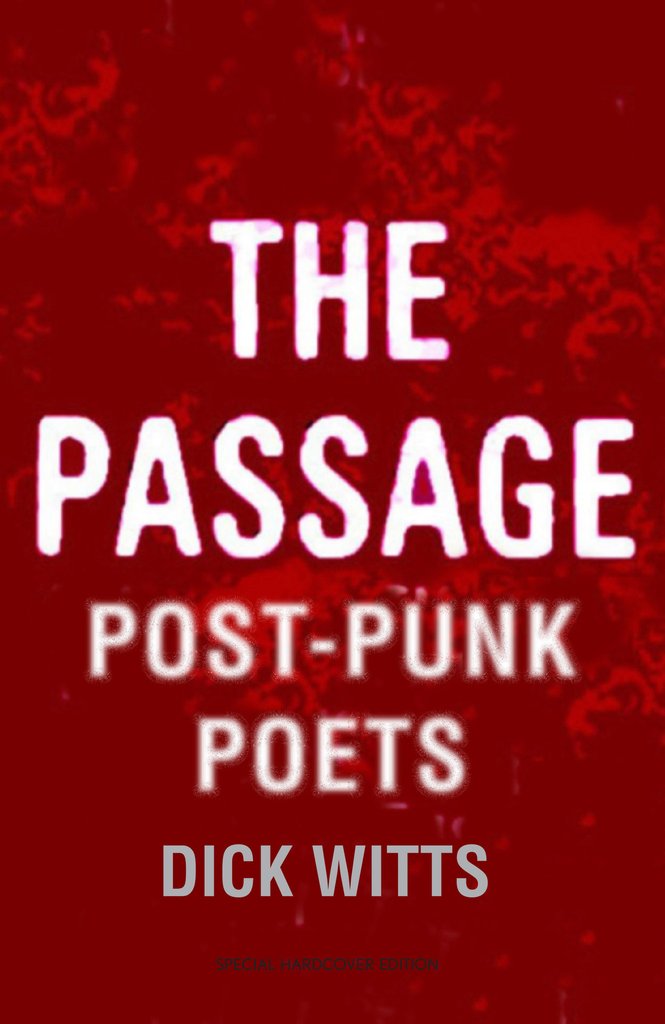
The Passage: Post-Punk Poets, Dick Witts (109pp, £20.00, Eyewear)
Back at the end of the 1970s and into the early 1980s, The Passage released four amazing albums on various indie labels, toured, played on the radio, and then quietly disbanded. Their songs discussed gender, love and sexuality (among other things) and also railed against the sexism and brutality of the police, particularly in the form of James Anderton, then Mancheter’s Chief Constable, in clever, pithy and intriguing songs. Despite critical acclaim they pretty much disappeared without trace until LTM re-issued the albums on CD, with the addition of an album of BBC recordings, in 2003. And now there’s this, a beautiful, limited edition hardback of selected lyrics, photos and commentaries, including an afterword by Passage mainman and lyricist Dick Witts, who is now a music lecturer and researcher at Edge Hill University.
There’s always a risk about presenting song lyrics as poetry, words isolated on the page away from the music, but judicious selection and presentation here escapes that trap. Although it says poets on the front, it’s really an exercise in memorabilia, a tribute and a reminder of how great The Passage were. The lyrics are direct and precise, as political and questioning as Crass or any anarcho-punk band, but far more subtle and intriguing. There’s a wit evident here too, which was sometimes lost on record, along with an occasional tenderness and concern.
What’s particularly interesting is how it seems more relevant than ever now that Führer May is pretending to be Thatcher and Britain seems to be returning to the social disarray and poverty of 30 or 40 years ago. ‘Dark Times’ indeed:
everything’s fine wonderful dreams
pills to swallow needles to clean
the curtains are drawn day and night
we don’t want to watch any drama outside
we hate it hate it hate it hate it all
if you didn’t know us you’d think it bizarre
everyone charged up falling apart
it’s all so sticky so very queer and
we can’t work out what happening here
[…]
we’ve got a little time, too little time
but you know deep inside
we’re at the end of the line
we’re dancing through dark times
Elsewhere the lyrics are denser: images and comments piling up like a car crash in ‘Sunburn’, mimicing Kurt Schwitters’ abstract songs in ‘bdr usa ddr jfk’, cleverly voicing desire and lust in ‘Carnal.
This is smart, self-aware writing that sometimes seems as disgusted with itself and the excesses of music, drugs and sex as critical of those with their own taboos, rules and self-righteous censoriousness. It is indeed, the evidence of a passage – through time, through the music industry, through youth culture, through to something else and beyond. Welcome to today’s world, same as the one we thought we’d left behind.
© Rupert Loydell 2017
